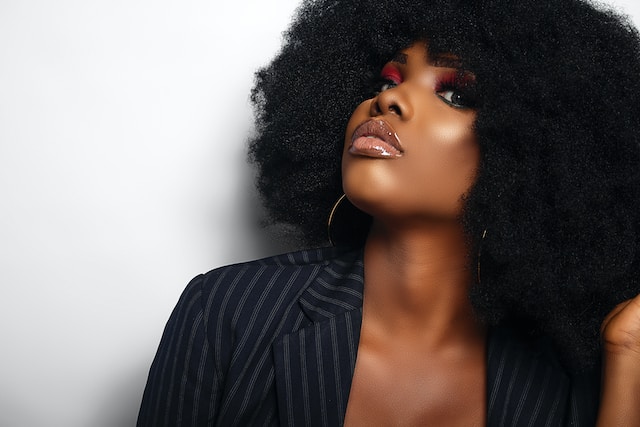Much has been said about the challenges we face when trying to untangle the negativity associated with our hair. The natural hair movement of the 1960s started the dialogue when it was entwined in the fight for our civil rights, and a rousing YouTube-fueled resurgence in the 2000s carried those conversations into this day.
Across the world, Black people are embracing the unique curves and bends of their natural textures; and as we continue to design an inclusive subculture around its management, ratification and physical complexities, it’s only fitting to ask: has the movement done enough to expose and eradicate the deceit behind the misconceptions of our hair and how it severely impacts our community, too?

Since slavery, Caucasians have led the charge of barbarizing and dehumanizing the appearance of Black people, imprinting this hatred and contempt within the hearts and minds of our ancestors. These ingrained, forced insecurities were passed down throughout generations and framed the fallacies that individuals still believe about Black hair today.
The Beja, a Sudanese tribe nicknamed “Fuzzy Wuzzies”, a flippant, disrespectful label characterized by the writer Rudyard Kipling, is an example of the incredibly racist and toxic ideology “sent home” by the white community. Writing in the 1880s—Kipling, an English author and poet best known for his poetry of British soldiers during the colonial period—was specifically referring to the Hadendoa (or Hadendowa) warriors, a clan of the Beja people, who were noted for their support in fighting the British during the Mahdist uprising of the 1880s to 1890s.
The Mahdist War was a majorly religious and anti-imperialist revolt launched in Sudan against Egyptian and British rule between 1881 and 1899. Considered an apocalyptic branch of Islam by Britain and the Egyptian government, Mahdism incorporated and defended the faith of a golden age in which the Mahdi, translated as “the guided one,” would maintain their own political and social identity and restore the glory of Islam to the earth.

The Hadendoa were famed for their gloriously thick, fluffy, natural curls (called tiffa in their language), those of which attracted great symbolic reverence. However, the fear of this portraiture manifested bigoted, harmful beliefs about what Beja hair represented: British soldiers deemed it undesirable, unkempt and dirty, contributing to popularized images of what people imagine when they think of our hair.
Although we’ve made tremendous strides in shaping how we (and others) see our hair, the by-products of its historically destructive perspectives still exist in and outside of our community, and we must continue to “wash our hands” – and our minds – of these damaging narratives.
So, let’s set the records straight. Below are some of the most popular Black hair myths we all might have fallen for, over the years.
Pro tip: Natural curl shrinkage is healthy…it means our hair is receiving the moisture it needs.
Our Hair Doesn’t Grow
Pro tip: Try to avoid shampoos formulated with sulfates, dyes and phthalates – excessive amounts tend to rob our hair of its moisture, strength and shine.
At first glance, it might seem as if our hair isn’t growing because its inherent shrinkage makes it shorter. In fact, all hair (regardless of race) grows at an average rate of a quarter of an inch to half an inch per month. However, poor practices such as neglect, abuse from chemicals, excessive heat and ongoing tension stunt length retention because the behavior causes hair to break at the ends.
Our Hair Is Hard To Manage
In most cases, textured hair is difficult to care for only when we attempt to treat it like straight hair. Our curls and coils are unique and require their own set of maintenance and styling methods. Our making time to continue to know them well allows our tresses to thrive.
Our Hair Is Strong
Contrary to popular belief, scientific research has shown that textured hair strands are extremely delicate. Our hair only appears strong, which is why it might have been inadvertently mishandled throughout the years. A more gentle approach, complete with natural ingredients, low manipulation and soft detangling methods, is better suited for our strands.

Washing Our Hair Often Will Dry It Out
Water is the best source of moisture for our hair, so the notion that frequent washing will cause dryness—more than once per week, for example—is totally false. Actually, product build-up is one of the main culprits that cause dryness, so regular hair washing is quite healthy. Stick to mild cleansing methods like water-only hair washing and co-washes, and use shampoos only when needed.








